An "Efficient" Eid Celebration in Melbourne
Who would've thought far-reaching budget cuts at home could affect how Indonesians celebrate Lebaran abroad?
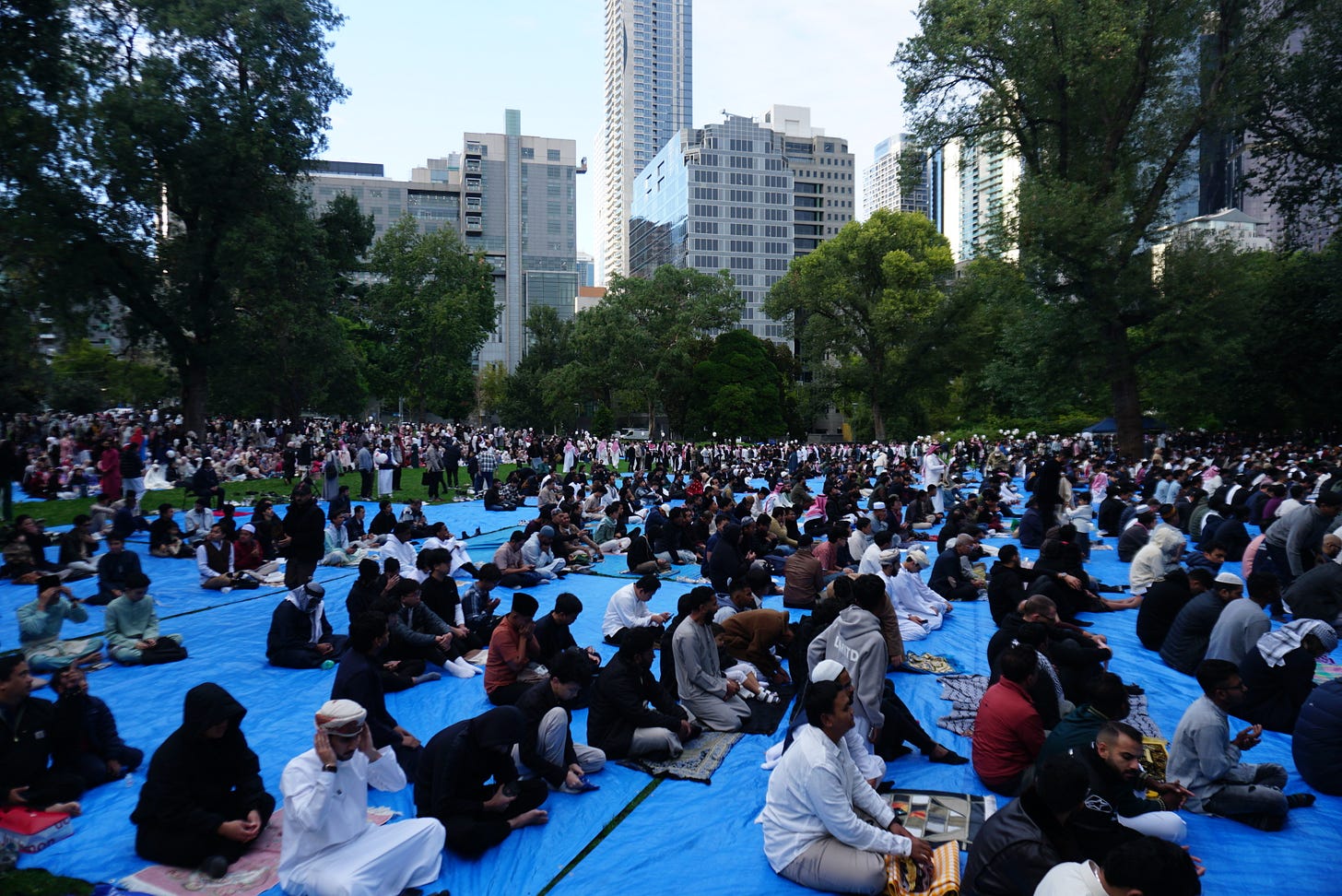
Joy was felt in the air as hundreds of Muslims gathered on a field at Flagstaff Gardens for Eid prayers on Monday last week. It was a celebration that marked the end of Ramadhan, a month in the Islamic calendar when Muslims fast from dawn to dusk as part of spiritual reflection and devotion.
Many had folded up their prayer mats and stood up to greet their brethren even though the khatib was not yet done with his sermon. Others, including children, lined up in front of a tent to get white balloons emblazoned with a picture of a watermelon, a symbol of Palestinian resistance.
What seemed to be a usual yearly festivity, however, wasn’t exactly what many Indonesian Muslims like Raisa Firasyan had expected following the Indonesian Consulate General’s announcement that no Eid salah would be held for this year’s Lebaran.
“Many of my friends had planned to go to the consulate because the khutbah would’ve been in Bahasa Indonesia. We would’ve understood it better,” said the 24-year-old South Jakartan, who is pursuing a master’s in Urban Design at the University of Melbourne.
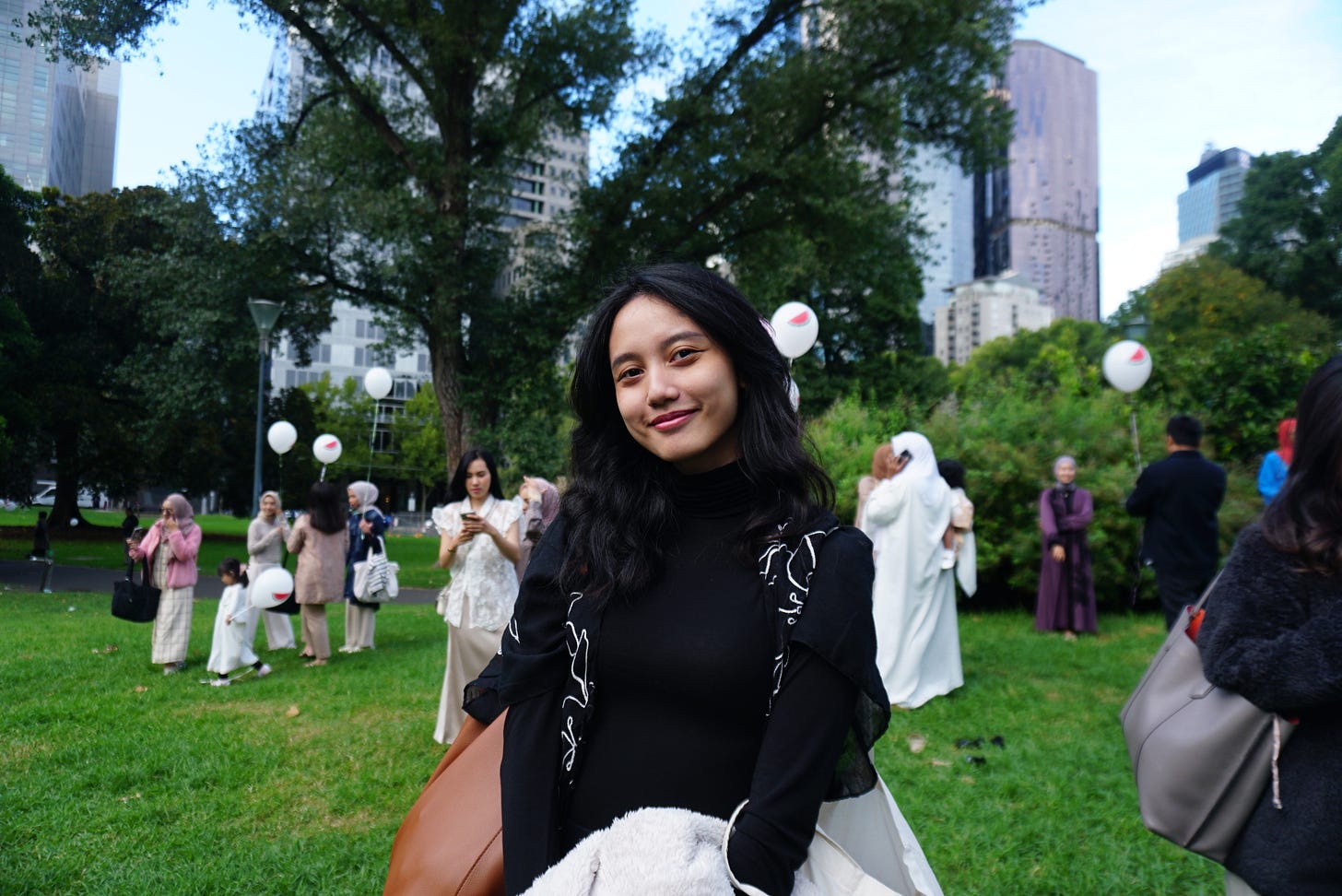
“Many [of my friends] started leaving towards the end of the khutbah. […] The Lebaran vibe would’ve been more strongly felt [at the consulate],” Raisa added.
The Indonesian Consulate General in Melbourne posted a “Holiday Notice” on Instagram on March 26, announcing a temporary halt of its service between 28 March and 7 April 2025 for Nyepi, the holy day of silence for Hindus, as well as Eid.
“The Indonesian Consulate General in Melbourne will resume operations on 8 April 2025,” the announcement read.
Although no explanation was provided, the absence of this year’s Eid celebration at the consulate is likely a consequence of far-reaching budget cuts worth Rp 306.7 trilion (around A$30 billion) in all government departments – except those related to defence – to fund President Prabowo Subianto’s flagship free meals program.
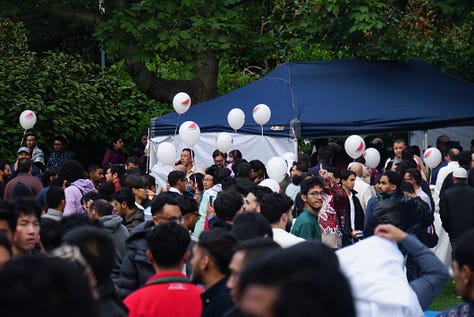
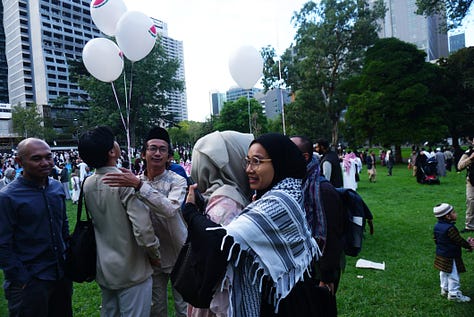
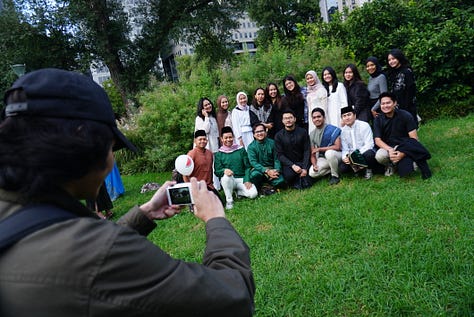
In a hearing with the Commission I of the House of Representatives (DPR), the Foreign Affairs Ministry’s Secretary General Cecep Herawan stated that his ministry suffered a budget cut of Rp 2.03 trillion (A$200 million) from an initial allocation of Rp 9.8 trillion.
“The efficiency measure will impact funding for 99 office and residential buildings, as well as rented housing facilities for 1,133 home staff members currently employed abroad,” Cecep said, as quoted by Kompas.com.
For Indonesians in Melbourne, this budget cut also meant no feast was held at the consulate where opor ayam used to be served for free to cure their homesickness, as they couldn’t return to their hometowns for the celebration – a tradition known as mudik.
Raisa said she and her five friends had to cook the central Javanese coconut chicken curry – a traditional dish for Lebaran across the country – themselves for their last iftar the previous day, along with ketupat (rice cake wrapped in woven plam leaves), eggs and potatoes with balado sauce, and iced cincau (grass jelly).
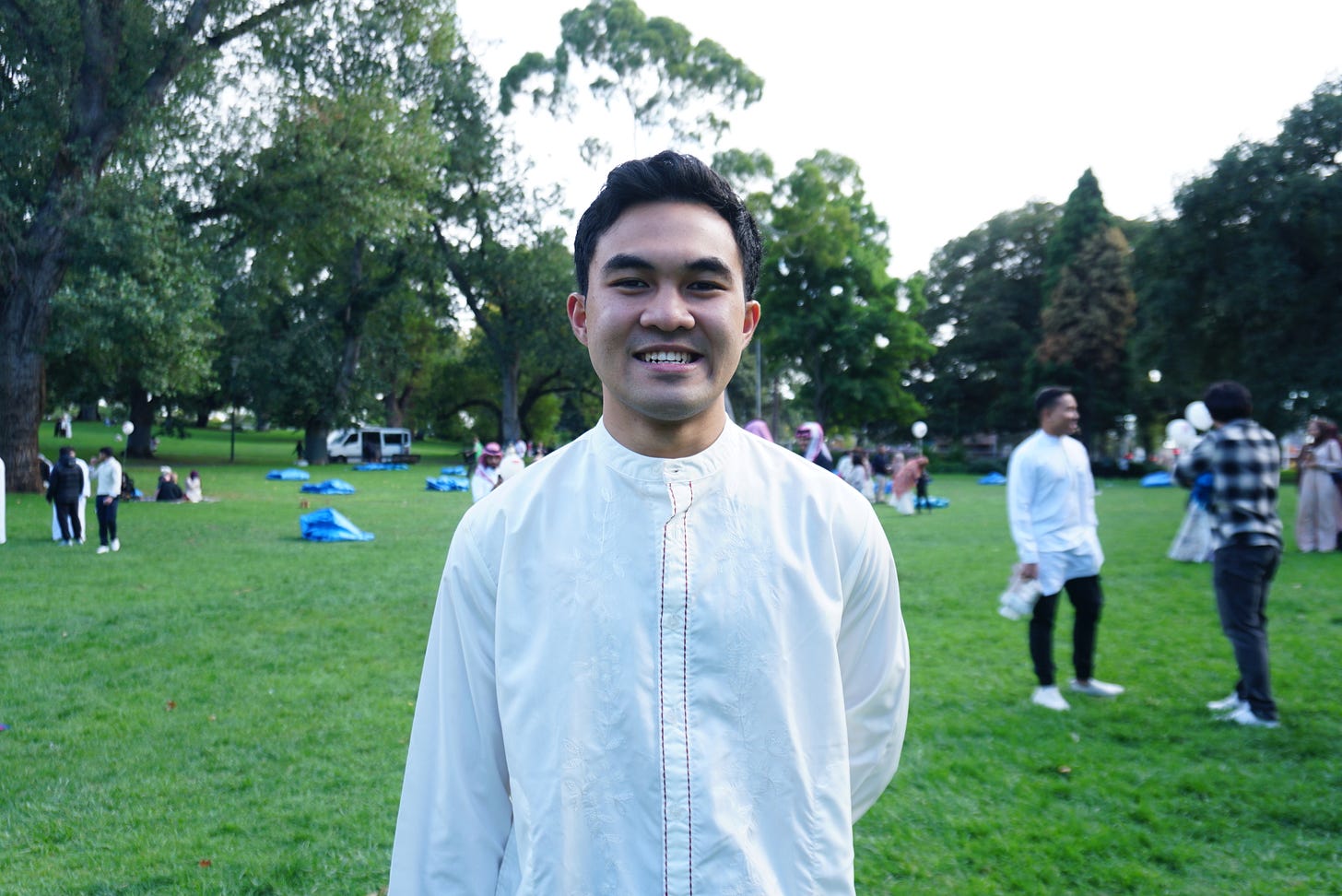
Unlike Raisa, Figo Maulana Said said he didn’t cook anything for the celebration, saying “I happen to be a bad cook”, but planned to visit friends who had prepared opor ayam.
“There is also a friend from Makassar hosting an open house, so I’ll have coto makassar today,” said Figo, who identifies as Bugis, an ethnic group from South Sulawesi.
Starting his master’s in International Relations at Melbourne University last winter, Figo said the absence of the consulate’s Eid celebration was “unfortunate” because it wasn’t merely a matter of a yearly event, but a symbol of Indonesia’s attention and care for its nationals abroad and Muslims around the world.
“As one of countries with biggest Muslim population in the world, holding Eid salah at consulates or other representative offices should be a yearly routine [for Indonesia],” said the 23-year-old.
Billy Adison Aditijanto, a journalist who founded and runs Perantau Podcast, said the consulate’s temporary closure was a reminder that “fleeing” the country didn’t make Indonesians immune to domestic policies.
“On the one hand, [the consulate holiday closure] is unfortunate because it weakens the social ties among Indonesians abroad. But on the other hand, it is good because people can see that any domestic policy can have a direct impact on the daily lives of the Indonesian diaspora,” he said.
However, for Dhanang Mangku Luhur, 34, the state’s absence shouldn’t be a reason to not have a nice Lebaran. So, he and his wife, Ghina Shabihah, 32, invited friends to their apartment in the city for Eid meals.
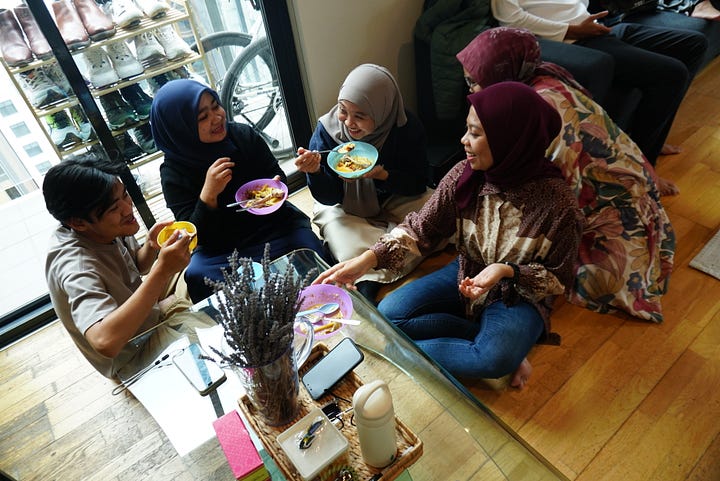
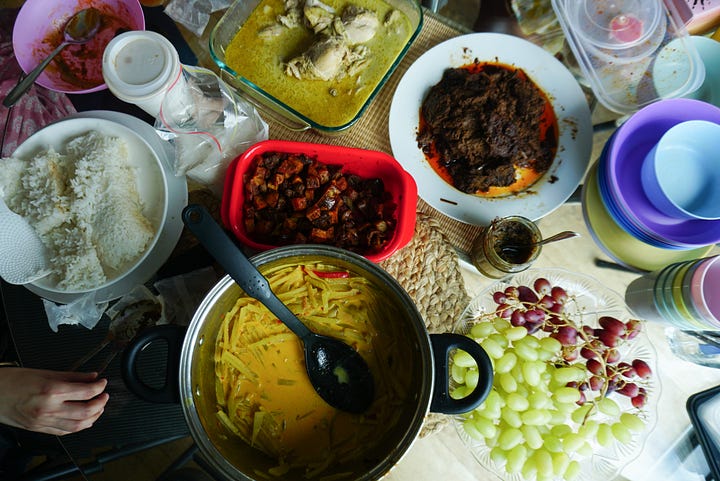
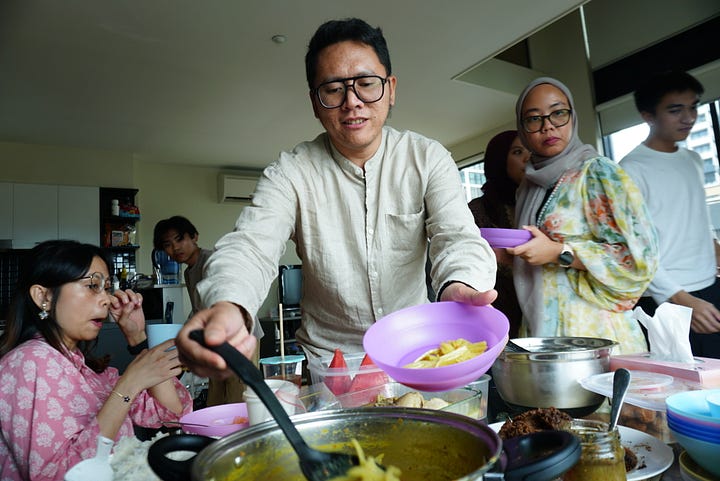
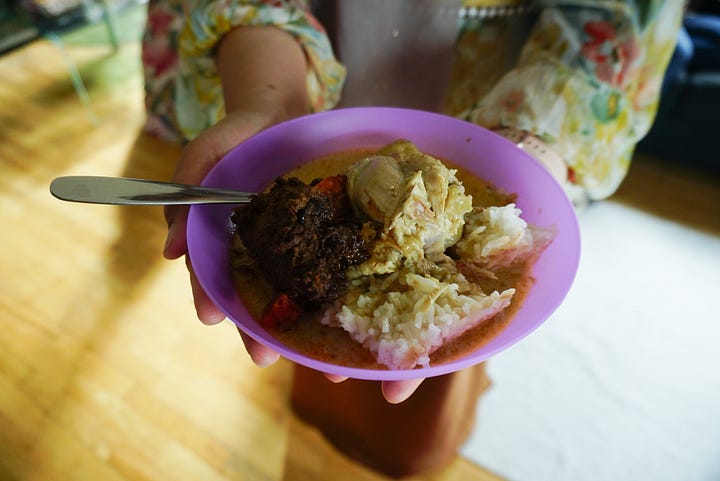
“We have rendang, opor ayam, and iced fruit cocktail,” said Dhanang, who chairs Melbourne University’s association for Indonesian students on the government’s LPDP scholarship.
He added that they had spent around A$100 on ingredients, including 3 kilograms of beef and chicken each, enough to feed about 20 people.
“These are dishes that we probably only serve once a year,” he said. “It’s good to have friends over, especially because this is the last Lebaran in Melbourne for some of us before returning to Indonesia.”





